Lillian Bauer (nee Huebner)
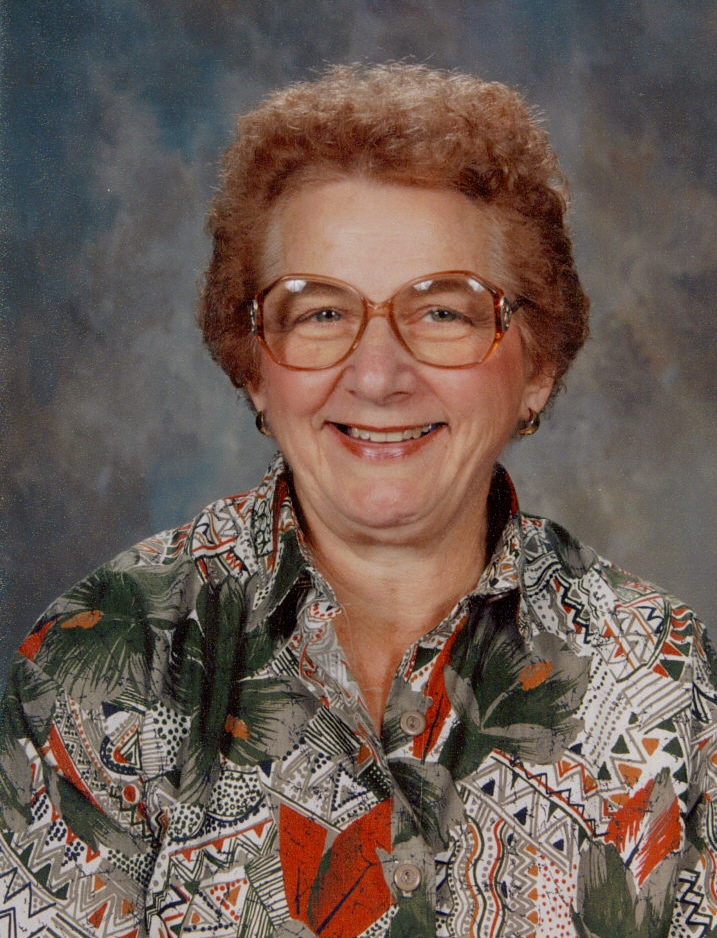

What was a typical day on the farm?
Work from sun up to sun down! The horses and mules were fed first so that they would be ready to work as soon as the other chores were done. Our chores consisted of milking cows, feeding chickens and picking up eggs, feeding hogs. And then you were ready to go to the field and work. Then you had to get home early enough because you had to do it all again in the evening again.
What was going to school in a rural school like?
Well we had to walk down to the corner to wait for the bus, which is about a half a mile and wait for the bus and when it rained the roads were muddy the bus didn't go so forget it we didn't go to school and it was a two room rural school with two teachers but it was fun we always had nice teachers we learned a lot.
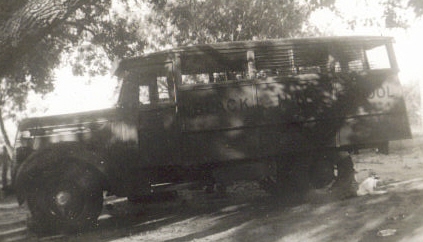
How many students were in your class at school?
Three.
Did you get a new teacher every year?
Oh sometimes they'd stay like two or three years. And we had outdoor bathrooms one for the boys and one for the girls, which are still there today. There was no lunchroom, we had to pack our lunch.
What were the advantages of a large family?
It was always like a big party and I always had a lot of Hand me downs, I can't imagine not having any siblings.
How close was the nearest town?
About twenty miles. It's twenty one to Pleasanton, twenty two to Floresville, and eighteen to Poth, but we did most of our trade in Floresville so.
What was it like growing up with so many older and younger siblings?
Well when you come to the table it was always like a big old party but we grew up poor and there was a lot of days my mother would say I don't know what I'm going to fix today but when we got to the table there was always a good meal. She could make anything out of anything she could make good out of anything. Like chicken dumplings, oh she could make some good dumplings.
What were your responsibilities growing up?
Well there was like a five year difference between me and Hilmer and when I was a teenager I fell into the oldest because the others were already gone from home so I had to work right along with my dad pulling corn picking cotton walking behind the mule grind corn for the chicks and shell corn we did all that by hand and shuck corn and the horses got the shucks and the hogs got the corn. It was a lot of work and we really had to huff it some nights to get through before dark. And I love to chop wood.
Why?
I don't know why, but if I could go out there and chop wood before my daddy would, man I would be happy. I'd chop the wood then carry it in before he would even be out. And I always said I would never have a fireplace, and there's no fireplace here!
What did you do in your free time as a child, what'd you do for fun?
We had tin cans those were our toys. We played house and we played store. We made mud pies. We didn't really have toys.
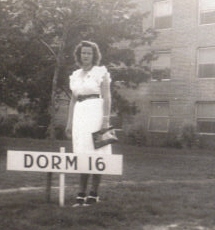
What was the thing you least liked to do on the farm, but still it had to be done?
Pick cotton! My feet, my knees, and my back still hurt!
What were your grandparents like?
I really never met either one of my grandfathers, they were both deceased before I was born. And my grandma Huebner was blind for years and years she was real little she used to live with us and I used to play with her like she was a kid and I'd walk up to her and I'd bring her play food and she would just play with me. And my grandma Barthold she had stayed with us for a short time one time but she had asthma and coming down here would just make it worse. She did a lot of hand work she crocheted and knitted.
When did you begin your first paid job and why?
I had my first job at about fourteen. I worked for a neighbor cleaning house and chores she needed to have done all for $2 a day and I mean, I thought that I had it rich.
What kind of medicine did you take when you were growing up?
Castor Oil and Baby Percy. One to get it going and one to stop it I don't hardly remember going to the doctor the only time I can remember going to the doctor is when I had a seed wart and he said I was not supposed to get my hand wet. I thought yes I don't have to do the dishes.
Describe your education.
I think being in a two room school with two teachers, we had first, second, third, and fourth in one room, and fifth, sixth, seventh, and eighth in the other, but we had no big groups there was pretty much all small groups so we got a one on one attention. We had an English club and every Friday we would go and learn how to run a meeting. We got the basics in common sense.

When did you learn to drive a car or truck, and who taught you?
It was about 1950. And my sister-in-law, Thelma, taught me. Opa didn't have any patience, he was like my brothers. Of course my brother had taken me out. We had a Model A and he had taken me out a couple of times, but the Model A didn't have any brakes. So without any brakes learning to drive was not funny. So I was scared. The first thing I drove would have been the Model A that was years earlier that I tried driving the Model A without brakes, but our car at the time I really learned how to drive on was a 1941 Ford. Then one day when no one else was around and I needed to go down and get something from Grandma Bauer's I backed up real nice and slow and then, BAM! I hit the well! And they all said, ďDidn't you know that was back there.Ē I was like well yes, but I looked and I didn't see anything back there!
How old were you when you got your drivers license?
I guess it was in about 1952 because I was working at the textile mill. So I was twenty years old. It was a cold day in New Braunfels and I had my window rolled down because I was hot! The cop was sitting beside me and when we got back to the court house where we were supposed to go he said, "Okay you can roll your window up now!"
When and where did you meet your husband, Julius (Buddy) Bauer?
Here. Yes, they only lived but where Uncle Boots lives (about 4 miles away) and Opa, Boots and some of the other brothers would come and help out with the hogs and such and I met him that way. So I guess you'd say I met him working for my dad.
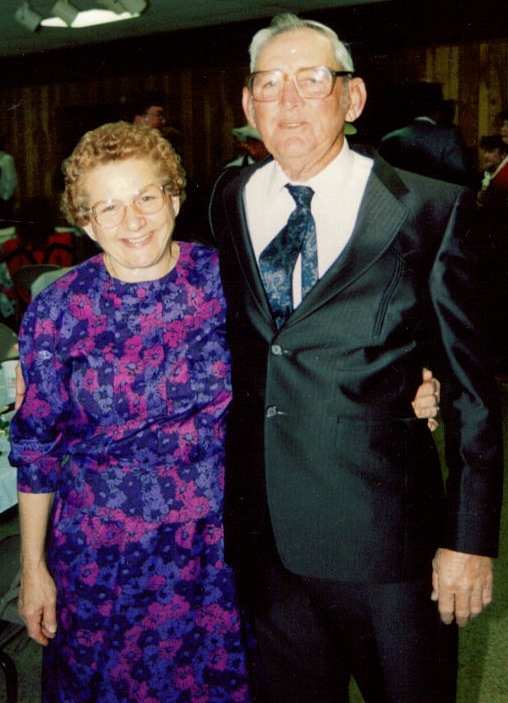
How did you manage without electricity?
That's a good question! Well, very well actually because I guess we didn't know any better we had our water jugs when we went to the fields we had a cloth around them dampen that cloth that kept them cool so we had cool water. And as far as meat was concerned, we belonged to a meat club and there was X number of people in the club and then every Saturday or Friday a person had to kill a calf and they divided it up in X number of pieces and on Saturday morning you went and picked up your meat and you got maybe twenty pounds of meat and that was for the week and my mother would cook it and preserve it like that. The X number members would take turns killing their calf and it went on around until it made the circle then it would start over and I don't remember how many members were in it but I think daddy had to butcher a calf like once a year. and they called it the butcher club. and we raised chickens so chicken is what we ate most of the time.
What year was it when you finally had electricity in the house?
Early forties, maybe 1942-43 something like that. We couldn't buy any appliance washing machine or refrigerators you had to sign up and when your name came up and there was one available. They would let you know and you couldn't just walk in and say I like this one or wait maybe I like this one, it didn't work that way, we didn't have that selection.
What was it like when you got your first television set?
We didn't get that until 1957 at an auction. A great big clunky looking thing, a real light color didn't match anything in the house, but we had TV and it played good. Saturday night we got through with work, and we went and watched TV. They had good programs on back, then none of this yucky stuff they have now. We'd always watch Hee Haw and Lawrence Welk.
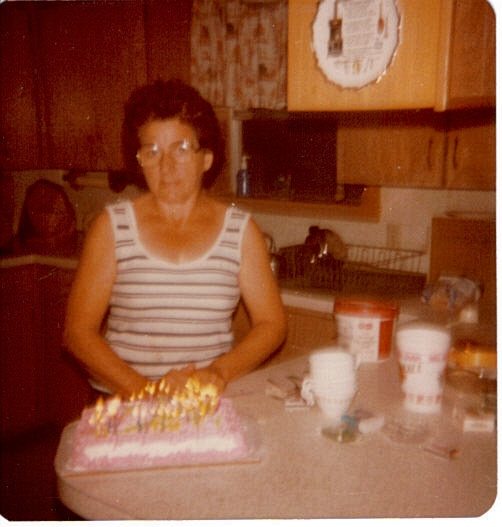
When did you finally obtain you G.E.D.?
Well, I was already working in the cafeteria and so I guess I had to of been in my forties. So early 1970s, Karon was still at home and had given me the $10 to take the tests. I had gone into Jourdanton, paid my $10 they required to take all the necessary exams and I passed, so I got my G.E.D. The only thing is I had to brush up on my math. I had gone down the road to Mrs. Gwendolyn Heirholzer for tutoring a couple of times before I took the tests. For everything else, I was fine.
How close was your closest neighbor growing up and were there any other children you would play with in the neighbor hood?
My closest neighbor was a mile down the road and he was a bachelor and the Kretzschmar were two miles and we'd visit every once in awhile. And there was this one boy Charles Beutnagel that was in my grade we started school together and he lived about 4 miles by the Bauer's and I couldn't stand that kid. they would come over to visit and they would always see us together and I got to where I couldn't hardly look at that boy and then it was customary to serve your company lunch well his parents would say Charles can sit by Lillian. I would be like, uh, I don't even want to eat.
Did you ever vacation?
When I was growing up? No, we didn't know what vacation was; when school ended we didn't say vacation we just said schools out. And later we never vacationed; we went to visit my brother Hilmer in Alma, Wisconsin that was the first time I'd ever stayed in a motel. That was in 1989 so it was 17 years ago.
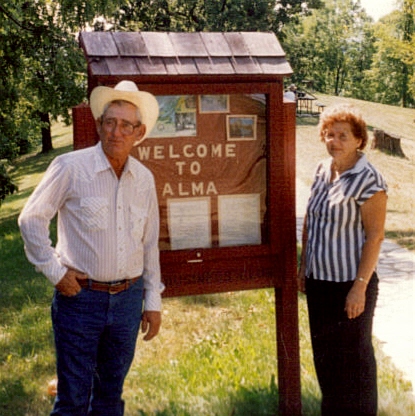
What was your work like in the textile mills and how old were you at the time you began work there?
I was a weaver that means that I wove the material had to operate I think there was 18 weavers at one time I worked from 11:00 at night to 7:00 in the morning If it was a night where they didn't work right that was something else. You have the shuttles go back and forth and you had to have good timing because if not it broke your threads. Then you had to tie a knot and I had to learn to tie a weavers knot and then weave it through and make sure to get it through the right needle if not you had a flaw in your material. and they checked your material you certain thread that was your color when you started you'd put your colors in so they knew who's material was whose. so if you messed up and one night my thread broke and I pulled it through with my hand and I had my weaver hook and I hooked it through and I caught my wedding band. and I couldn't get it off my wedding band and there comes my manager talk about embarrassment aye yi yi. I was twenty one years at the time.
When did you get your first telephone and what was it like?
Our first telephone was in 1958. My mother and daddy had a telephone when we lived in Converse one of those you turn and talk into, but when we moved to Black Hill they never got one.
What changes have occurred and were they necessarily for the better?
A lot! Yes a lot of changes we never had any conveniences when we got electricity it was just the basics washing machine and a refrigerator we didn't even have a fan. We had Kerosene lamps on Saturday mornings that was our job to clean all the lanterns so they were nice and clean for the week.

The Handbook of Texas Online is a multidisciplinary encyclopedia of Texas history, geography, and culture sponsored by the Texas State Historical Association and the General Libraries at UT-Austin. It was produced in partnership with the College of Liberal Arts and the General Libraries at the University of Texas at Austin. Copyright © The Texas State Historical Association. Last Updated: May 6, 2004.
Mapquest is a site used to obtain maps and directions.
TV.com is a library of television shows from the past that no longer air, as well as current shows. It gives sneak peaks at the next episodes airing, photos, forum, etc.
Lawrence Welk is the official Lawrence Welk Show webpage.
Television History is a site that shows televisions first 75 years. It gives a description of a large variety of televisions from different decades and what they looked like.
Baby Percy is the official webpage for Baby Percy. The link gives information on how the medicine originated.
National Heart Lung and Blood Institute lists and gives a definition of diseases and what can cause them.
Cost-of ĖLiving Calculator Calculates how much a certain amount of money would have been worth in todayís money value.
Model A This picture gives you an idea of what the first car Lillian Bauer (nee Huebner) first drove.